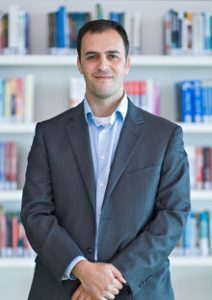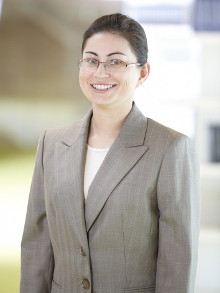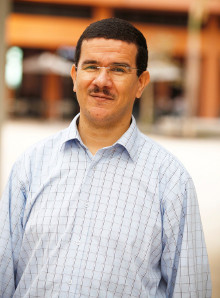Projects on Water Quality Sensors and Solar Cell Technologies Demonstrate Knowledge-Building Measures
 Abu Dhabi-UAE: 26 June, 2013 – Masdar Institute of Science and Technology, an independent, research-driven graduate-level university focused on advanced energy and sustainable technologies, today announced three projects offered for the research internship program this summer will target the key areas of water quality and solar cell technology.
Abu Dhabi-UAE: 26 June, 2013 – Masdar Institute of Science and Technology, an independent, research-driven graduate-level university focused on advanced energy and sustainable technologies, today announced three projects offered for the research internship program this summer will target the key areas of water quality and solar cell technology.
Water quality sensors, solar cell applications and Si PV solar cells are some of the projects offered for the four-week research-based internship program for UAE national undergraduates that is scheduled to commence from 30 June this summer.
The project titled ‘Technologies and Applications of Solar Cells’ will be led by Dr. Mahieddine Emziane, Associate Professor, Materials Science and Engineering program. The project offers students an opportunity to design solar cells from materials and device perspectives, to model and simulate solar cells, as well as investigate solar cells under UAE operational conditions. An intern is also expected to assess and conduct a feasibility study of the solar cells. In addition to proficiency in science and engineering, self-motivation and hard work are additionally required to complete this research project.
 The ‘Real-Time Continuous Water Quality Sensors’ project will be spearheaded by Dr. Clara Dimas, Assistant Professor – Microsystems Engineering program. An intern working on this project is expected to test Microfluidic and optical devices to sense water quality parameters and review the information available in relevant literature. Students majoring in Chemical Engineering / Material Science / Electrical Engineering / Mechanical Engineering with a penchant for innovation were eligible to apply for this project.
The ‘Real-Time Continuous Water Quality Sensors’ project will be spearheaded by Dr. Clara Dimas, Assistant Professor – Microsystems Engineering program. An intern working on this project is expected to test Microfluidic and optical devices to sense water quality parameters and review the information available in relevant literature. Students majoring in Chemical Engineering / Material Science / Electrical Engineering / Mechanical Engineering with a penchant for innovation were eligible to apply for this project.
Dr Adel Gougam, Assistant Professor – Materials Science & Engineering, is in-charge of the project titled ‘Technology comparison of high efficiency Si PV Solar Cells’. An intern is expected to do a comprehensive study on the existing high efficiency (above 18%) Si based solar cells and do a technologocial and economical assessment of the various technologies involved in the fabrication of the high efficiency cells and assess the potential of market penetration of such technologies in the UAE and the GCC. Eligibility includes proficiency in physics, materials science, chemistry and some computer modeling.
An arid region, the GCC considers water as a strategic area. A Frost & Sullivan analysis reveals that between 2010 and 2012 the GCC has witnessed growth rates between 14%-20% across various segments of the water and wastewater industry, including treatment equipment and chemicals. In the next five years, the region expects that numerous technology options will be available for desalination, water and wastewater treatment.
 Dr. Clara Dimas said: “Water quality sensors play a crucial role in ensuring public health and a healthy environment. This research project will help interns to use devices to generate data for quality assessment. We hope students will enthusiastically participate in the project and enhance their research skills for future opportunities.”
Dr. Clara Dimas said: “Water quality sensors play a crucial role in ensuring public health and a healthy environment. This research project will help interns to use devices to generate data for quality assessment. We hope students will enthusiastically participate in the project and enhance their research skills for future opportunities.”
One of the fast growing sectors in clean energy, solar power offers tremendous potential. According to a report titled ‘Growth Opportunities in Global Solar Photovoltaic Cell Market 2012-2017: Trends, Forecasts and Opportunity Analysis’ from international firm Research and Markets, the global solar photovoltaic (PV) cell market is expected to reach US$35 billion by 2017, with compound annual growth rate (CAGR) of 4% over the next few years. Such analyses reflect the growing global trend in installing high-power devices that facilitate access to solar power.
 Dr. Mahieddine Emziane said: “Various technologies and applications are being used to make solar cells generate power more efficiently. The interns selecting their project will work on solar cells from the design stage to conducting feasibility study. We hope the university seniors will learn additional skills through participating in this project and creatively enhance their knowledge in the science and engineering of solar cells.”
Dr. Mahieddine Emziane said: “Various technologies and applications are being used to make solar cells generate power more efficiently. The interns selecting their project will work on solar cells from the design stage to conducting feasibility study. We hope the university seniors will learn additional skills through participating in this project and creatively enhance their knowledge in the science and engineering of solar cells.”
Dr Adel Gougam said: “Si PV solar cells are generally flat and rigid compared to other types of cells. Our summer research project will aim to assess the efficiency rates of these cells and establish a baseline of the research to be carried in the field. We hope students will gain expertise in understanding the complexity of the various processes involved in the fabrication of these high efficiency cells, noting that Si based cells represent the largest share of the PV market as of today.”
In order to participate in these research projects, the UAE national undergraduates must have science or engineering as ‘major’ subjects in their degree course and a GPA of at least 3.0 (on a 4.0 scale). An IELTS score of at least 6.0 (or equivalent) is mandatory along with a letter of recommendation.
Serving as a key pillar of innovation and human capital, Masdar Institute remains fundamental to Masdar’s core objectives of developing Abu Dhabi’s knowledge economy and finding solutions to humanity’s toughest challenges such as climate change.
Established as an on-going collaboration with the Massachusetts Institute of Technology (MIT), Masdar Institute integrates theory and practice to incubate a culture of innovation and entrepreneurship, working to develop the critical thinkers and leaders of tomorrow. With its world-class faculty and top-tier students, the Institute is committed to finding solutions to the challenges of clean energy and climate change through education and research.